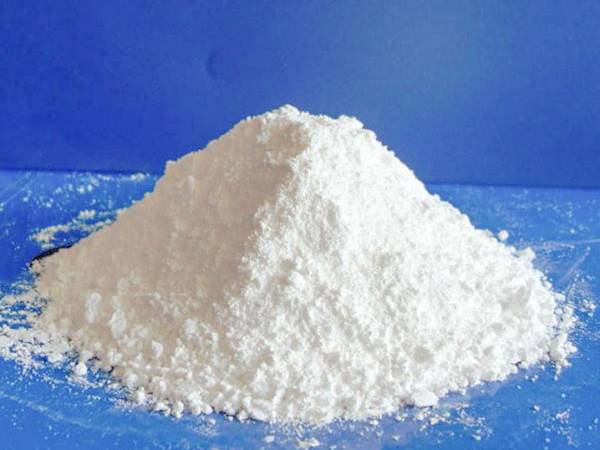



Barium Carbonate Powder – High Purity, Bulk, Best Price
Barium Carbonate is a key solution in the manufacturing industry, specifically within Chemical raw material and chemical product manufacturing industry and Manufacturing of inorganic chemical raw materials. This article explores how HEBEI FIZA TECHNOLOGY CO., LTD. supports professionals with durable, high-performance products, and explains why this product is an ideal choice for businesses in these sectors.

Table of Contents
- Barium Carbonate Overview
- Benefits & Use Cases of Barium Carbonate in Manufacturing of inorganic chemical raw materials
- Cost, Maintenance & User Experience
- Sustainability & Market Trends in manufacturing
- Conclusion on Barium Carbonate from HEBEI FIZA TECHNOLOGY CO., LTD.
Barium Carbonate Overview
Barium carbonate (BaCO3), also called carbonate barium, is a white, odorless, water-insoluble inorganic salt integral to upstream and downstream processes across glass, ceramics, ferrites, and other inorganic chemical value chains. In manufacturing, this compound functions as a sulfate scavenger, a fluxing agent, and a precursor to high-value barium salts such as barium chloride, barium nitrate, and barium hydroxide. In practice, barium carbonate powder is supplied in tightly controlled purity grades and particle sizes to ensure consistent reactivity, flow, and dispersion in batching and wet-milling operations.
- Technical profile: formula BaCO3; density ~4.3 g/cm³; decomposition above red heat to BaO + CO2; low solubility in water but reactive with acids—making it suitable for targeted in-process transformations.
- Industry-standard specifications typically emphasize high assay, low Fe and sulfate, and a tailored PSD for application-specific performance, from glazes to ferrite feedstocks.
- HEBEI FIZA TECHNOLOGY CO., LTD. is a reliable manufacturer and supplier delivering stable quality, consistent logistics, and technical documentation (COA/SDS) to support compliance-driven B2B environments.
Benefits & Use Cases of Barium Carbonate in Manufacturing of inorganic chemical raw materials
In Manufacturing of inorganic chemical raw materials, Barium Carbonate enables cleaner processes and superior product outcomes. In bricks and tiles, it minimizes efflorescence by precipitating soluble sulfates as insoluble BaSO4, reducing surface defects and warranty claims. In ceramics and glass, it acts as a fluxing oxide source (BaO) to enhance gloss, durability, and control of thermal expansion while stabilizing color development in glazes. For ferrites, controlled-purity barium carbonate powder supports consistent phase formation, resulting in repeatable magnetic performance. It is also used to remove sulfate impurities in brine treatment and as a building block for downstream barium salts manufacturing.
- Applications: ceramics (body and glaze), glass formulations, structural clay products, ferrite magnets, brine/water sulfate removal, and synthesis of other barium compounds.
- Advantages: low impurity profile reduces defect rates; tailored particle size boosts dispersion and firing consistency; reliable supply supports uninterrupted production; competitive barium carbonate price improves cost per batch.
- HEBEI FIZA TECHNOLOGY CO., LTD. combines application know-how with responsive service—helping technical teams select grades, optimize dosages, and align packaging (25 kg bags or jumbo bags) with plant handling systems.
Cost, Maintenance & User Experience
Total cost of ownership for Barium Carbonate is shaped by delivered price, batch yield, quality stability, and storage efficiency. A consistent grade reduces rework, kiln downtime, and scrap in ceramics and glass, while effective sulfate control in clay bodies and brine treatment cuts remediation costs. Buyers often evaluate barium carbonate price alongside logistics (FOB/CIF/DDP), packaging preferences, and the supplier’s on-time delivery metrics. Proper storage—cool, dry, sealed—maintains flowability, limits moisture pickup and agglomeration, and supports predictable dosing. Use standard PPE and dust control per SDS; avoid contact with acids during storage and handling.
- Durability & ROI: Fewer surface defects and glaze issues in tile/brick, plus stable ferrite phase formation, translate into higher first-pass yield and better line efficiency—direct ROI drivers for plant managers.
- User feedback: B2B customers value the predictable PSD and low impurity levels because they simplify recipe control and scale-up. HEBEI FIZA TECHNOLOGY CO., LTD. supports trials with technical guidance and documentation to help QC teams qualify supply with minimal disruption.
Sustainability & Market Trends in manufacturing
Sustainability priorities and regulatory expectations are reshaping inorganic chemical supply. In ceramics and glass, tighter energy and emissions targets incentivize flux systems that enable quality at optimized firing profiles—where Barium Carbonate can contribute to surface and durability performance. In water and brine treatment, sulfate removal with BaCO3 forms stable BaSO4, supporting discharge compliance when managed under a suitable waste plan. Market-wise, demand is underpinned by construction ceramics, specialty glass, and electronics-related ferrites, while buyers increasingly require transparent sourcing, SDS/COA packages, and alignment with RoHS/REACH where applicable.
- HEBEI FIZA TECHNOLOGY CO., LTD. positions itself as a forward-thinking partner—focusing on quality consistency, dust-minimizing packaging, and responsive documentation to help EHS teams maintain safe handling and compliance.
- With resilient logistics planning and customer-centric inventory strategies, the company helps mitigate volatility, keeping supply steady and barium carbonate price competitive for long-term contracts.
Conclusion on Barium Carbonate from HEBEI FIZA TECHNOLOGY CO., LTD.
Barium Carbonate remains a cornerstone raw material for manufacturers seeking reliable sulfate control, robust ceramic and glass performance, and a dependable precursor for other barium salts. For B2B decision makers, consistent quality, technical support, and supply continuity matter as much as price—and that is where HEBEI FIZA TECHNOLOGY CO., LTD. delivers meaningful value. From tailored barium carbonate powder to flexible logistics and documentation, the company aligns with modern plant requirements and compliance frameworks. Ready to evaluate grades and secure a competitive barium carbonate price?
- Contact us: email: james@fizachem.com
- Visit our website: https://www.fizachem.com
-
Effective Deionized Water Disinfectant Solutions for Healthcare & Industrial UseNewsNov.24,2025
-
Commonly Used Disinfectant for Drinking Water – Global Uses & InnovationsNewsNov.23,2025
-
Chemical to Disinfect Water – Essential Solutions for Safe, Clean Drinking WaterNewsNov.23,2025
-
Blue Water Disinfectant: Safeguarding Global Water Quality with InnovationNewsNov.22,2025
-
Bleaching Powder for Water Disinfection – Affordable & Effective Water Treatment SolutionNewsNov.22,2025
-
Bleaching Powder Drinking Water: Effective, Affordable Disinfection WorldwideNewsNov.21,2025
-
Essential Guide to a Chemical Used to Disinfect Water | Global Water SafetyNewsNov.21,2025










